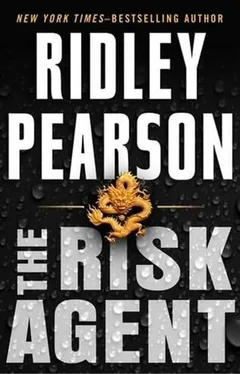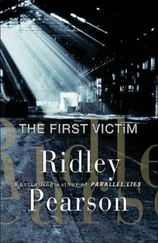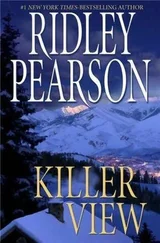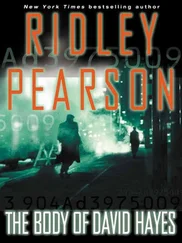Danner had cut the duct tape and was peeling it from his wrists.
“Just do me a favor,” Danner said, “and wait to kill him. It’s not like I forgive him or anything.”
Knox breathed loudly. “That’s better.” He looked back at Danner and allowed the shadow of a smile.
“If you want to kill him after you’ve heard his story,” Danner said, “I’m first in line. This is not coming down on you. Not after all you’ve done.”
“I think you’d better shut up, too,” Knox said, dismissing Danner suddenly with a heated glance. It hadn’t been 44 that Danner had scratched into the arm of the first chair he’d occupied; it had been initials: LH.
His brain was set to a high boil. He couldn’t make sense of things. The fatigue. The wound. The risks. Lu Hao had kidnapped himself. Knox still wanted to pulverize him, punish him. He thought of Grace. He wondered what came next, knowing the answer: Dulwich. He couldn’t leave Dulwich behind.
“Repack that bag,” Knox said. “The money comes with us.”
5:07 P.M.
HUANGPU DISTRICT
To the right of the number 3 entrance of the Nanjing Road East Metro station was an unmarked, oversized black metal door pasted with stickers for music albums, American guitar and amplifier manufacturers, and posters for local rock bands, a door easily overlooked.
Grace knocked and the door was opened by a bald, middle-aged man with a crooked but flat nose and clear eyes. From behind him came the muted but grating strains of heavy-metal rock and roll being played grossly out of tune. The man recognized her from earlier when she and Knox had rented the underground practice room. He swung open the heavy door, admitting her to a landing and a set of dimly lit metal stairs.
She was sixty feet underground by the time she reached a long concrete corridor, passing through a pair of blast doors hung on heavy hinges. An overhead tube light flickered with each pulse of the music, not one band, but two or three.
This was but one of the dozens of such bomb shelters built under Mao to house city residents and his army in fear of a Soviet missile strike. The memory of the Japanese occupation and slaughter had never left the Chinese consciousness and never would. Some of the bunkers were now open as mini-museums around the city. Others, like this, had been taken over by squatters and were open for commerce-rehearsal space for wannabe rock stars.
She reached bunker number 4 and opened another heavy metal door-appropriate to the music thumping down the hallway. She moved inside and shut it behind herself.
The room smelled foully of sweat, cigarettes and stale hefan. Eggshell foam rubber was glued to the gray concrete walls. Carpet samples covered the floor. Electric conduit and outlets had been crudely retrofitted. Two dim compact fluorescent lightbulbs hung from the ceiling.
It had come to this, she thought: hiding out in a hole dug underground like some kind of animal. Reduced to lie and bribe one’s way into a small, dismal room, all because of another’s lying and bribing. Evil begets evil. She felt a shudder of release swell within her-grief, sorrow, the aftershock of the adrenaline that had built up during the ransom run; her failure of having moved around the city with nothing but newspaper inside the duffel. How would that affect Knox and his efforts at extraction?
Wet and shivering, she glanced over at the closed door, wondering when Knox might arrive, or if, by losing track of the money, she’d compromised their mission.
5:26 P.M.
Knox delivered Lu Hao and Danner to the subterranean music rooms, arranging for Grace to care for Danner and keep a close eye on the turncoat, Lu Hao.
Few words passed between him and Grace. The contrition with which she’d met him at the bunker door told him she knew Lu Hao’s story-a realization that sucked Knox’s lungs dry. He couldn’t make sense of her expression, couldn’t reason his way to how she might possibly know; but she didn’t so much as flinch at the sight of Lu’s hands bound, and she treated him like a wet dog as she dragged him inside.
“Later,” Knox said, patting the duffel bag containing one hundred thousand dollars.
“Where are you going?” she called out.
“Possession is nine-tenths of the law,” he returned.
Knox arrived at the Muslim quarter dressed in the pale blue jumpsuit worn by city sweepers and trash collectors. He carried a Nike duffel bag. His face was covered with the ubiquitous surgical mask worn against smog. Along with the brim of a ball cap pulled down low, he hid his race as best as possible.
The duffel was somewhat out of place on a street sweeper. But with the start of the National Day holiday, no one paid attention to anyone else: it was every man for himself.
He splashed through the rain-flooded lane, the full force of the approaching typhoon yet to arrive, moving toward the Mongolian’s small apartment.
He was less concerned with the Mongolian, and far more with the police or whoever Kozlowski had likely already sold him out to, for he knew he’d been thrown under the bus. He’d traded Kozlowski the Mongolian’s address for a chance to leave the country-and had filled Danner in on the details of the contact in case he didn’t make it back to the bomb shelter. But the final piece of the frame was worth the risk. If the kidnapping and ransom collection fell onto the Mongolian, neither he nor Grace-nor Lu Hao!-would be accused of involvement. Furthermore, Kozlowski seemed the only one powerful enough to get Dulwich out of the country in one piece.
He moved down the narrow lane quickly now, feeling eyes boring into his back.
Knox broke off the tip of the switchblade, jimmying the Mongolian’s lock and getting the door open, but was inside without too much telltale damage to the jamb. He relocked it behind himself, and made quick work of opening the wall panel that hid the video camera and Chinese currency he’d seen here before. He removed the disk from the video camera-evidence that might come in handy-and pocketed four 10,000-yuan packs of currency, enough cash to buy favor. The space was too small to accept the full duffel, leaving Knox no choice but to take the time to unpack the dollars and stack them into the available space in an orderly fashion. When completed, it looked as if the wall was insulated with hundred-dollar bills. He folded and stuffed the empty duffel into the remaining space inside. Neat and tidy.
He was tightening the panel’s last screw when he heard the splash of footfalls in the alley. They came to a stop by the door to the room.
Knox grabbed a pair of socks and rubbed out his wet tracks that led to the wall panel. No matter what, the Mongolian must not discover the cash ahead of the police. The lock rattled. Knox slid open a dresser drawer and messed up the contents to give the impression he’d been rummaging.
The door swung open. Rain blew in from behind the Mongolian. The man withdrew a blade.
Knox wrapped his left hand in a T-shirt from the drawer.
“Do you know why I’m here?” Knox asked in Mandarin.
“I think you wish to negotiate. But you have nothing I want. Except your life, of course. I want to end that. Badly,” the Mongolian answered.
“I have Lu Hao and his accounts,” Knox said, dropping it like a bombshell.
“I think otherwise.”
“I can make a call.”
“Why buy what I can take?” the man said.
“Because you don’t know where he is,” Knox answered.
“Oh, but I will in a matter of minutes. That, or you will be dead. Either way it is satisfactory to me. You have been a pain in the ass, eBpon. I will be glad to be rid of you, if that is your choice.”
“You will kill him,” Knox said.
The Mongolian laughed a legitimate laugh. He shrugged.
Читать дальше












